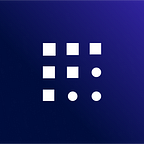Fetch.AI’s latest release speaks your language
- Update enhances long-term network stability
- Includes new Etch features to make our code more developer friendly than ever. We now support every language under the sun, including Mandarin, Greek and Hebrew — even emojis 🎉
Introduction
We are excited to announce our latest technical update: Aquarius. Our previous release, Apus, marked the launch of our alpha mainnet. In this release we have focused on further enhancing the stability of the Fetch.AI network and have included some new features to make things easier (and more fun!) for developers.
Etch: Persistent globals
The Aquarius release includes the very latest version of Etch, our smart contract language. Etch is designed to support the scalable complexity of algorithms and to enable our revolutionary Synergetic Contracts that projects such as Ethereum cannot match.
In this release, we introduce a new language feature called persistent globals.
Some members of our developer community previously said they found working with persistent data cumbersome. So we have designed a solution to tackle this problem. Let us know what you think!
Express yourself
As an international company where many languages are spoken, we appreciate the need for Etch to reflect our global ambitions. With this in mind, Aquarius includes full UTF8 (unicode) support. This will allow developers to not only code in a range of languages, including Mandarin, Arabic, Cyrillic, Hebrew and Devanagari, but also to use emojis 👍
No such thing as a free lunch
As part of the development of the ledger, the latest release now supports computation fees for each transaction. Developers should be aware that this will mean the charges for each transaction might increase slightly. The API has been updated so you will be able to see a summary of the charges for any given transaction.
To non-developers, this might sound regressive, so it’s worth explaining why networks charge developers for computation. By running a smart contract on the Fetch.AI network, developers are using computational power and storing smart contract variables too. Just like when you use a dishwasher, you pay for power in the form of an electricity bill. Likewise, if you rent storage space, you have to pay for it. These small charges incentivize developers to use the network in such a way that it can be run as efficiently as possible.
Additional updates
Our Aquarius release includes a number of machine learning library updates. Some of these, such as new maths functions and examples of machine learning, are outlined in the documentation section of our community website.
As with most technical updates, we have also provided a number of bug updates. We would love your help reviewing this newly released code. As part of our Technical Bounty program, we are awarding up to $10,000 worth of FET tokens for critical issues reported in our GitHub ledger repository. Get in touch if you see something that doesn’t look right!
For more information and support, check out our supporting documentation or join our developer Slack channel.
Coming up
Each release draws us closer to the launch of our mainnet later this year. This summer we’ve released Antlia, Apus and now Aquarius. Can you work out the name of our next technical update? The first person to guess it correctly in the comments section below wins a Fetch.AI T-shirt and bag!
